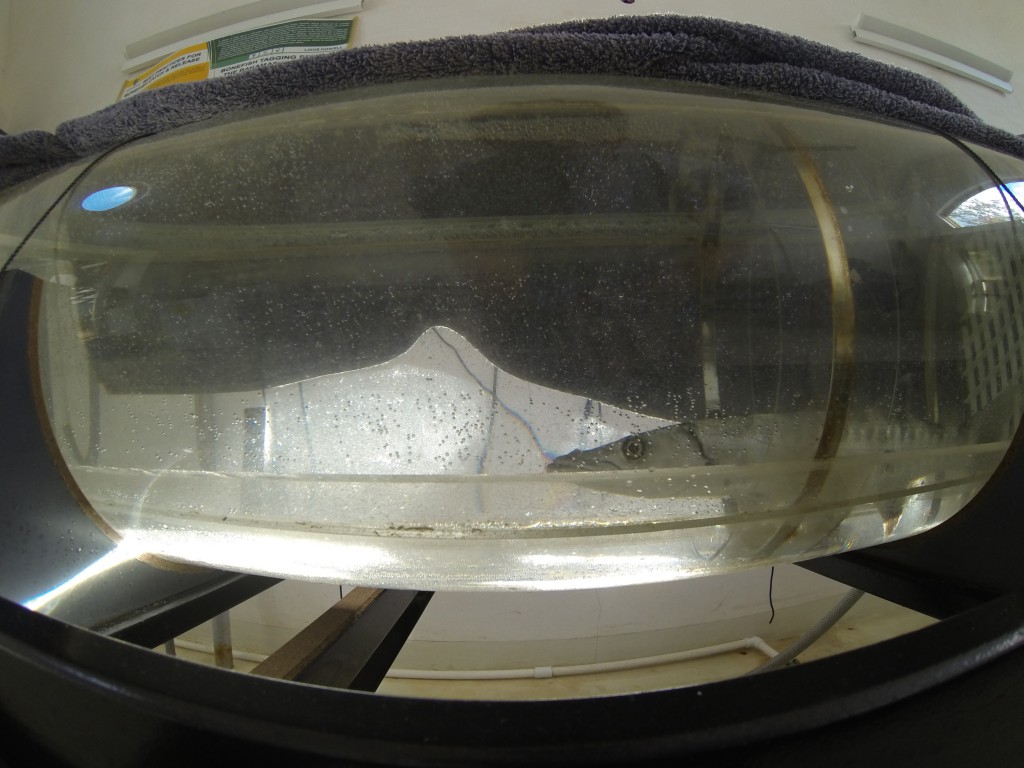
Over the next 100 years, factors causing climate change have the potential to increase sea
surface temperatures by up to 5 degrees Celsius. However, even a small increase could have
drastic effects on tropical areas due to the historical thermal stability of places such as the
Caribbean. Recently, the Cape Eleuthera Institute has been focusing efforts on investigating how
climate change may affect tropical fish species and the marine communities with which they
interact. One specific project is using a swim tunnel to measure the aerobic scope of Great
Barracuda (Sphyraena barracuda) and Schoolmaster Snapper (Lutjanus apodus). A swim tunnel
is a cylindrical tank in which a fish swims against a current and its oxygen consumption can be
measured. Data obtained from the swim tunnel such as swimming velocity and respiration rate can then be used to calculate the fish’s aerobic scope. Aerobic scope, or the capacity for oxygendriven metabolism, is a good overall indicator for performance and can estimate how much energy a fish has to devote to essential behaviors such as foraging, predator evasion and reproduction. The water that flows through the swim tunnel can be slightly warmed to simulate future ocean
conditions, and the fish’s response can be quantified. Through this study, CEI and the Flats
Ecology and Conservation Program hope to gain insight on how different coral reef and mangrove
fish species will react under the thermal stressors that climate change may present.